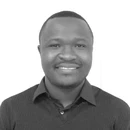Dr. Oyewole Oginni
Germany
Senior Researcher
Bonn International Center for Conflict Studies (bicc), Bonn
2023
www.bicc.de
Political Scientist
Doctor of Philosophy (Political Sociology)
MA (Civil-Military Interaction)
MA (Governance, special focus on transborder security)
MSc. (Forensic Science: Criminal Investigation)
doctoral work
Prof. Dr. Jörg Blasius (first supervisor), Inistitut fur Politische Wissenschaft und Soziologie, Universitat Bonn.
Prof Dr. Eva Youkhana (second supervisor), ZEF, Universitat Bonn.
Forthcoming
2023
2021
2020
2019
2018
2016
2015
2014
2013
and Downloads
- Governance
- Mobility and migration
- Institutions
- Social and Cultural Change and Adaptation
- Methods
- Theories of Development
- Development Politics
- Human Rights
- Urbanisation
- Governance and conflict
- Burkina Faso
- Nigeria
- Cameroon
- Mali
- Niger
- Liberia
- Chad
Course: WiSe and Sose 2023/24: Western and non-Western approaches to conflict resolution in the Global South (Bachelor and Master) Faculty of Philosophy, Uni Bonn
Course: WiSe and Sose 2022/23: Germany's actornness in conflict resolution in the Global South (Bachelor and Master) Faculty of Philosophy, Uni Bonn
2020 Winter Semester: "Field research in Multilingual settings - cross border analysis in conflict-affected regions"
2021 Winter Semester: "Field research in Multilingual settings - cross border analysis in conflict-affected regions"
Doctor of Philosophy (Political Sociology)
MA (Civil-Military Interaction)
MA (Governance, special focus on transborder security)
MSc. (Forensic Science: Criminal Investigation)
Civil-military interactions, governance and migration, security sector reforms, DDR; conflict and post-conflict transition
Deutscher Akademischer Austauschdienst/German Academic Exchange Service (DAAD)
Federal Ministry of Economic Cooperation and Development (BMZ)
Inistitut fur Politische Wissenschaft und Soziologie, Universitat Bonn
doctoral work
Prof. Dr. Jörg Blasius (first supervisor), Inistitut fur Politische Wissenschaft und Soziologie, Universitat Bonn.
Prof Dr. Eva Youkhana (second supervisor), ZEF, Universitat Bonn.

Former Junior Researcher
Former
Division/Group:
Cultural and Political Change
Office E-Mail:
oyewole.oginni(at)bicc.de

